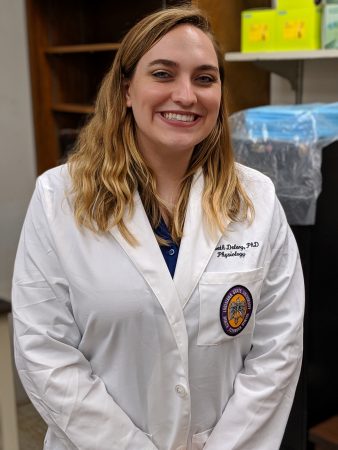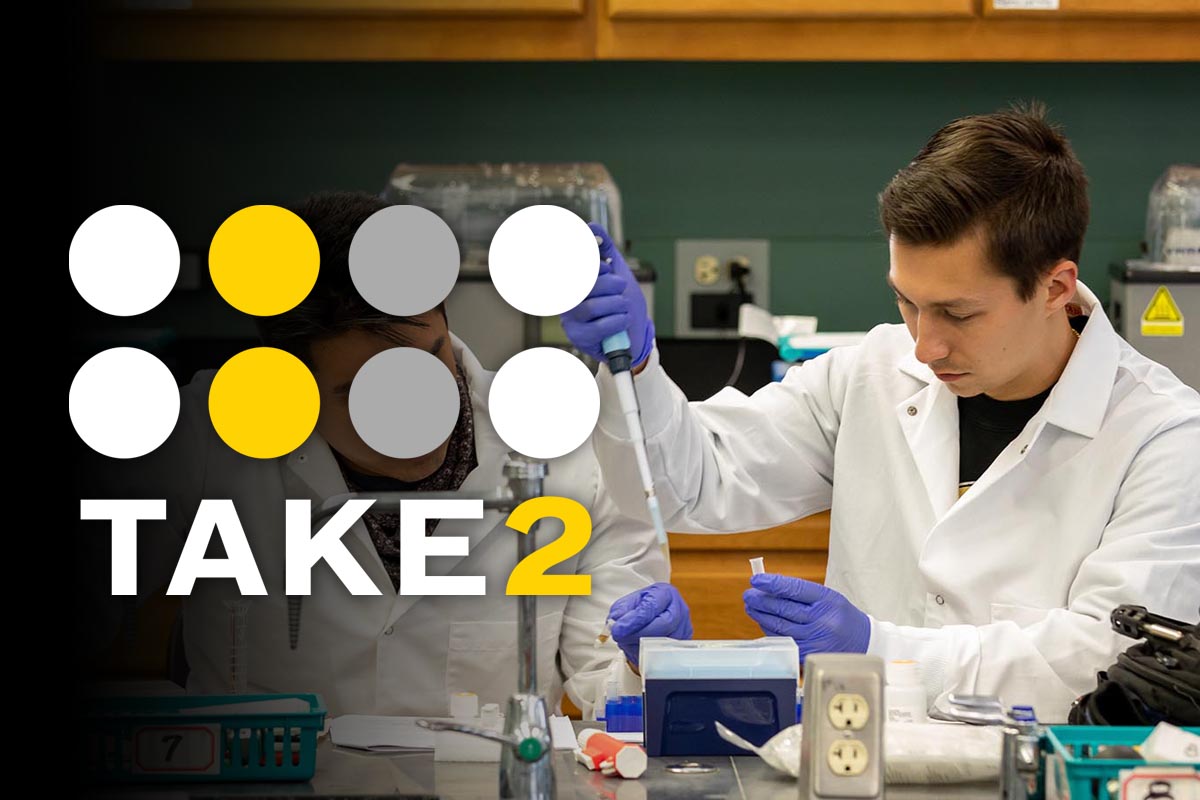Elizabeth Delery ’14 named Cell Culture Hero, will present worldwide webinar

Elizabeth Delery
Elizabeth Delery ’14 has been named a Cell Culture Hero by Gibco/Thermo Fisher, and will present a global webinar on July 31 at noon. Registration for the event is available at http://bit.ly/2Yml06h.
Delery is a postdoctoral fellow for the physiology department at Louisiana State University’s Health Sciences Center, where she studies the neurobiological interactions of alcohol, opiates, and pain. She has also submitted a grant to study HIV and opiates in a primate model, and is following a career path in neurobiology and/or neuroimmunology. She earned her Ph.D. in biomedical services from Tulane University School of Medicine.
“My passion for science started at a very young age,” Delery wrote in her biography. “My dad was a forensics investigator for the New Orleans police department, and after school I would spend time in the lab where he taught me about DNA, fingerprints, and microscopy.
“I was fascinated by the puzzle of all of it and I made my life goal to be an ‘ist’ (scientist, biologist, paleontologist, etc.),” Delery continued. “My teachers and professors encouraged my love of science and made sure to emphasize the contributions of women in science, like Marie Curie, Rosalind Franklin, and Barbara McClintock. I admired the sacrifices these women made in order to help humanity and advance their fields.”
At Randolph, Delery majored in biology and psychology with a pre-med concentration. “There I learned the value of experiments and research from the best professors I have ever met, and was encouraged to pursue a career in research,” she said.
At Randolph, Delery conducted Summer Research with biology professor Adam Houlihan and Meron Demeke ’15 on Listeria monocytogenes, a type of bacteria sometimes found in soft cheeses that can be deadly to the elderly, children, and pregnant women. She also won Best Senior Project in the psychology department for her senior psychology thesis on “The Effects of Meditation on the Cortisol Stress Response.”
Delery also credits Randolph’s small class sizes for giving her the individual attention she needed to accomplish her goals.
“The professors actually care about the students and want to them to succeed, and will dedicate their free time to making it happen,” she said. “I honestly would not have gotten into a Ph.D. program immediately after Randolph graduation if it wasn’t for the research experience and lab training I got at Randolph, the conferences I attended to present that research, and the personalized letters of recommendation I received.”
Delery added that there were several other perks to her Randolph education. She enjoyed the beautiful scenery on campus, the camaraderie and traditions, and the friendliness of the community. She also appreciated the liberal arts curriculum and exploring aspects outside of the sciences.
“A liberal arts education helps prepare you for any kind of future because it teaches you critical thinking, a respect for the world, and makes you a well-rounded individual capable of functioning beyond your selected major/career choice,” Delery said.
Tags: Adam Houlihan, alumnae, alumni, biology, Cell Culture Hero, Meron Demeke, outcomes, psychology, research, science, student faculty research
